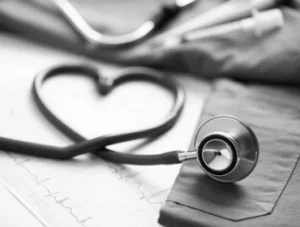What Happens to Your Body When You Stop Drinking? Side Effects & Benefits

If drinking is your go-to way to blow off steam after a busy week, schedule a booze-free, self-care activity for Friday afternoons, like indulging in a hobby you enjoy or a pampering session like a massage. High blood pressure can lead to several health complications, such as stroke, heart attack, kidney disease, vision loss and more. “If you are diagnosed with high blood pressure, lifestyle modification is key.
- Alcohol consumption increases the amount of calcium that binds to the blood vessels.
- However, the CDC states these findings may be due to other lifestyle differences between people who drink moderately and those who do not.
Alcohol’s Effects on the Cardiovascular System
The researchers found that the alcohol-drinking subjects (particularly those who were insulin sensitive) had higher insulin levels and a slower rise in glucose levels after a low-carb meal. They recommended confirming these results in younger women and in men, particularly since their subjects had been older women, who have more significant cardiovascular risk. Hence, we conducted additional analyses to see if the very high dose of alcohol (≥ 60 g or ≥ 1 g/kg) had any dose‐related effects compared to lower high doses of alcohol (31 to 59 g of alcohol) (see Table 9). Results suggest that the decrease in BP with very high doses of alcohol is greater compared to lower high doses of alcohol. However, the result was heterogeneous; therefore, we are unable to make any implications from this.
Flechtner‐Mors 2004 published data only

Limiting alcohol intake is advised, and avoiding it is even better,” Vinceti said. Having high blood pressure means that your heart must pump harder, and the arteries have to carry blood that’s flowing under greater pressure. This puts a strain on your arteries and your heart, which in turn increases your risk of a heart attack, a stroke or of suffering from kidney disease. “The good news is that earlier stages https://ecosoberhouse.com/ of steatotic liver disease are usually completely reversible in about four to six weeks if you abstain from drinking alcohol,” Dr. Sengupta assures. Heavy drinking can also lead to a host of health concerns, like brain damage, heart disease, cirrhosis of the liver and even certain kinds of cancer. Your doctor will often advise you when it’s safe to start drinking alcohol again, from a medical perspective.
Shai 2015 published data only
This supports the findings from other studies that the alcohol-induced changes in HDL-c do not fully account for the lower risk of CHD in moderate alcohol drinkers (Mukamal 2012). This review did not find any eligible RCTs that reported the effects of alcohol on women separately. Because women could be affected differently by alcohol than men, does alcohol decrease blood pressure future RCTs in women are needed. If future RCTs include both men and women, it is important that their blood pressure and heart rate readings are reported separately. Although eligible studies included East Asian, Latino, and Caucasian populations, they lacked African, South Asian, and Native Hawaiian/other Pacific Islander representation.
- This review did not find any eligible RCTs that reported the effects of alcohol on women separately.
- Finally, in studies of people from certain Eastern European countries, investigators have failed to find a cardioprotective effect with any level of ethanol consumption (Britton and McKee 2000).
- The morning after a night of over-imbibing can cause some temporary effects on your brain.
- To help manage cholesterol and blood sugar, try some of the same healthy habits that help lower blood pressure.
- However, they excluded studies for which the duration of BP observation was less than 24 hours and articles published in non‐English languages.
However, among studies designed to examine the influence of beverage type, no differences have been found in CV disease outcomes or biologic markers, such as HDL-c (Mukamal et al. 2003a; Volcik et al. 2008). Differential associations of CV risk with certain beverage types such as wine instead have been attributable to other lifestyle factors (e.g., increased physical activity) or drinking with meals (Malarcher et al. 2001). Several studies and meta-analyses have been conducted to determine the relationship between alcohol consumption and the risk of developing heart failure in healthy subjects, as well as in those with a history of MI or CHD. Studies also have examined the “safety” of alcoholic beverage consumption in subjects with heart failure.

Mechanisms Related to Alcohol’s Positive and Adverse Effects on CV Conditions
Retterstol 2005 published data only

Ease stress

Want to get fit and healthy?

 فایل های صوتی جلد 1
فایل های صوتی جلد 1 فایل های صوتی جلد 2
فایل های صوتی جلد 2